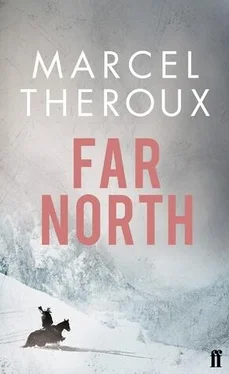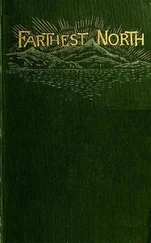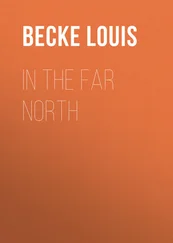At that he came closer and offered to shake my hand on it.
I told him not to mistake me, and that I was shaking his hand in spirit, but that there were diseases and strong poisons in the Zone and either one of us might have picked them up. I said until it was clear that we were both well, we should give each other a wide berth.
Shamsudin surprised me then by bursting into tears and saying he was tortured by the thought of what he’d sunk to.
I told him not to mind it and that supposedly better men had sunk to a lot worse.
*
Before I left I collected the memory stone I’d put on the roof. It was warm to the touch but there was no life in it. I squeezed every button and even tried shaking it. The thing was just no good any more.
As I drew back my arm to pitch it into the river, its screen picked up the sunshine and cast it into my eyes. It was bright enough to make me wince. I held it in my palm and turned it this way and that in the light. The glass of it was so true that it worked like a mirror.
I hadn’t seen my face up close for so many years, and to tell the truth, it looked a little better than I remembered.
Twenty years seemed to have taken the anger out of the scarring. I was a sight older, but my face looked more comfortable with itself. Not pretty, by a long chalk, but no longer hideous. Or maybe I’d just imagined it was worse than it was.
I decided to reprieve the mirror. I would hang it from a string above my seeds to keep the crows off. I liked the idea that it would have a second life as a bird-scarer. I put it in my coat pocket with my tinder and flints.
After a hunt, I found a hammer for Shamsudin to break open his chains with. He went at it for a while and managed to get the chain off, but couldn’t crack the fetters.
*
We left the Zone around noontime. There were about four hundred yards of slush between us and the bridge. I walked the horse, but I kept ten yards ahead of Shamsudin. Whenever the squish of his footsteps got too close, I pressed on a little faster.
Just stepping onto the bridge, I immediately felt different. I realized that I’d been breathing shallow the whole time I’d been in the city.
The first body we came to lay a yard or two beyond the block post. It belonged to Zulfugar. I didn’t linger there. The shell they used must have had a soft tip because it had sprayed a peacock’s tail of his insides across the snow.
I pushed on to the campsite at the far side of the bridge. I was hoping that, being a horse down for the trip home, Tolya would have had to shed some rations, but all I could find at the spot was empty tins and bottles and their cold cooking fire. I raked the embers with my toe just in case they had dropped some food.
Shamsudin was dawdling on the bridge. I looked up and saw him stood on his knees by the body, head bowed, saying a prayer over the dead man, and I shouted to him not to get too close to him.
He yelled back an oath at me in a thick, choked voice.
I drew my gun and ran back after him, struggling to keep my footing in the slush, and telling him not to touch the corpse, or I’d shoot him. I was breathing hard by the time I caught up to him, but my gunsight was steady enough on his forehead.
His eyes were all flared up. He jutted his chin at me as though to say he’d get as close as he wanted. Then he turned away from me, grabbed Zulfugar’s sleeve to pull him up sitting, and hoisted the body from its armpits.
It was an awkward lift and he tottered as he got to his feet.
I don’t know if he thought I’d shoot. I don’t think he cared by then.
He buried the body in a bank of shale at the river’s edge. I watched him from the track as he dug out a trench with his hands and pieces of flat stone. It was not much more than a foot deep and it took him a while to get the body covered.
*
We made our way slowly south as the light lengthened, and the sky turned all blue and gold. Shamsudin and I never said a word to each other until sunset.
When we stopped, I cut us both branches to lie on. He offered to help but I said he should keep his distance. His coat was still spotted with gore from the corpse. He’d buried his friend and as good as buried himself, but he wasn’t going to bury me.
I made his bed a noisy one so I could keep an ear on him.
The weather was warm for early March, but it was cold and comfortless without a fire and I was too hungry to sleep.
I was watching us both for signs of sickness. I didn’t want to die now, not here, within an ace of being properly free.
The twigs Shamsudin was resting on rustled as he shifted his place.
I told him that in a day or two, we’d be able to hunt the wildlife and burn wood. There were fish in the rivers just south of here. We were too late for salmon, but there was pike-perch and grayling. We’d leave them on the ice and carve them into frozen slices — stroganina. There were leaves and mosses we could eat. If it came to it, I could make famine bread from pine bark. I asked Shamsudin if he’d ever eaten horse-flesh.
He said, ‘Not knowingly.’
I told him he was in for a treat. Horse makes a fine sausage, and the steaks are sweet and tender. The Yakuts eat the liver frozen raw — like meat ice cream.
Shamsudin said that in Harbin once he’d eaten a meal that went on for forty courses and more than ten of them were goat.
I asked him where else he’d been. He reeled off a list of cities and then asked me where I’d travelled.
Of course, I had to tell him that Polyn was my first city proper, but I’d covered a lot of territory in the Far North.
‘Makepeace,’ he said, ‘you are a savae.’
He didn’t mean it unfriendly, but the truth is it stung a little. I’m sensitive on that score. My ways are rough. I’ve done brutal things. There’s a shame in me at my ignorance, and the gulf between me and my parents.
‘Civilization and cities are the same thing,’ Shamsudin said. ‘And that place is not a city. It is a tomb.’
I asked him how much he’d seen of it.
‘More than enough,’ he said.
*
Shamsudin told me that the prisoners had split into pairs almost as soon as they got across the bridge.
There had been excitement at first. They had a little food each. They felt free. The ones like me who had never been to a city were in awe of it. For the men like Shamsudin, there was some sadness, a sense of impossible return, the feeling of seeing a dead friend’s face in a dream.
He stopped his story for a moment and I knew he was thinking of Zulfugar.
Some of the prisoners ignored the maps and went to scavenge food or tools. The rest made their way through the city, following the route I’d taken.
The maps they had copied led them to the square with the big bronze head in it and then beyond, to the industrial part of the city, the place that Tolya had called Polyn 66.
There was an immediate change in the look of the place. There were no more churches with onion domes, or timber houses. The buildings were all taller, newer. Tanks and army vehicles lay abandoned in the street. Zulfugar got nervous, thinking the road was mined.
Shamsudin shared my view that our crew were only the latest to visit the Zone. In an alleyway, where he’d gone to piss, he stumbled on a heap of sticky rags, thigh bones, and a chain.
Little by little, the other pairs of prisoners dropped away.
Human nature being what it is, some were content to pick up any old flotsam and head back with it. Shamsudin laughed as he remembered what they had taken: old car batteries, the ballcock of a cistern, the cogs from a sewing machine.
But others headed into the ruins of the city with a grim resolve. They used crowbars to break into old storerooms, and stacked makeshift sleds with what they found there, hoping rather than trusting that Tolya would deal fairly with them.
Читать дальше












